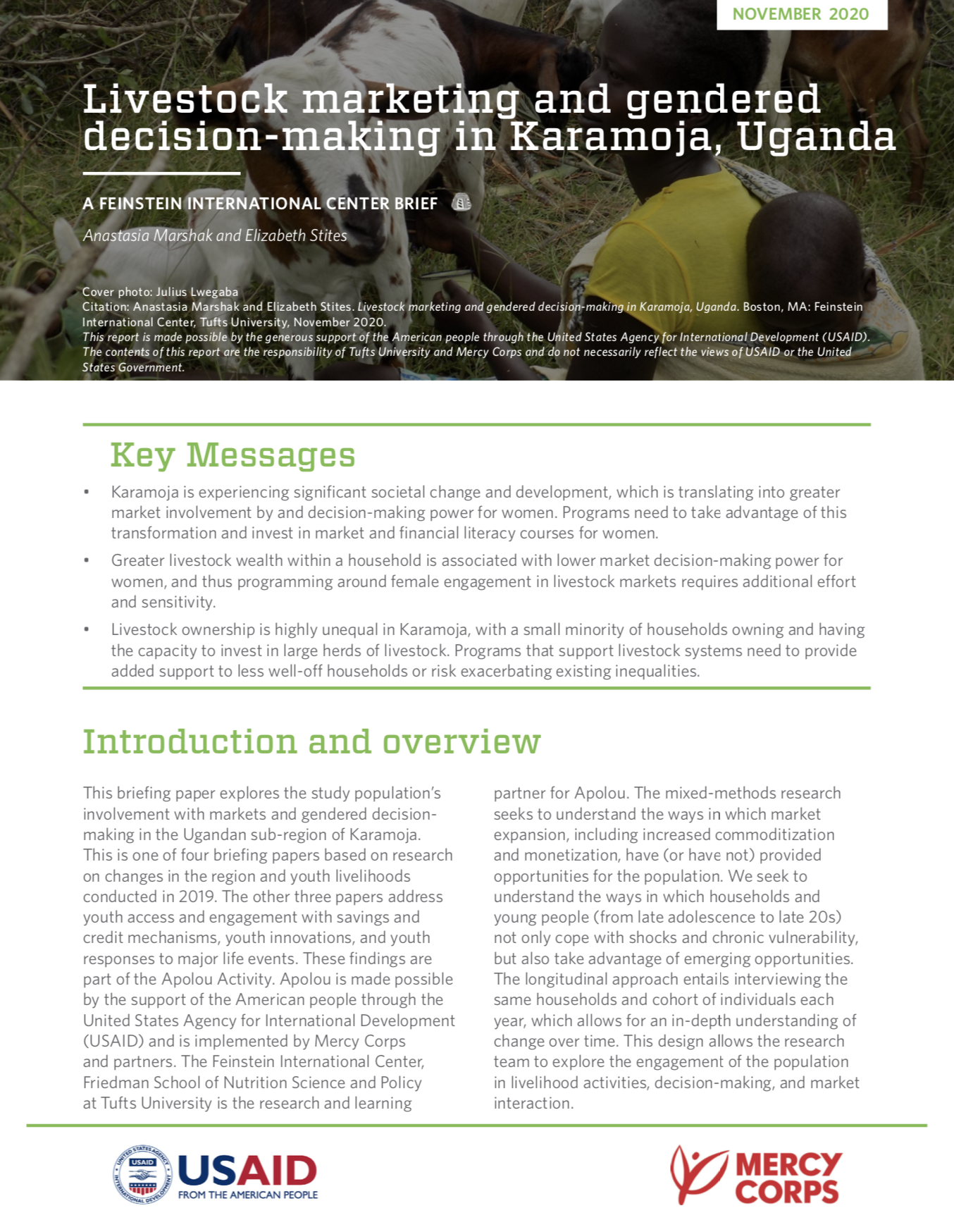This briefing paper is based on a midline quantitative survey for the Apolou project in the Karamoja sub-region of Uganda. Building upon differences in livestock wealth and farming wealth established in the baseline, in the midline we found that greater livestock wealth within a household correlates to lower decision-making involvement by women within that household. Countering this will require targeting programming in pastoral areas and investment in marketing and financial literary support for women. The midline data also show that livestock ownership remains highly inequitable in the region, with only a small number of households owning sizeable herds. Programs that support livestock systems need to take into account those who are being left out of such interventions and take care not to exacerbate existing inequities.
This study is taking place in with 52 households in four districts in the Karamoja sub-region of Uganda. The baseline occurred in late 2018. The midline took place in late 2019. The endline will take place in late 2021; the same households are interviewed each time.
This is one of four briefing papers based on research on changes in the region and youth livelihoods conducted in 2019. The other three papers address youth access and engagement with savings and credit mechanisms, youth innovations, and youth responses to major life events. The other briefs are available here.







